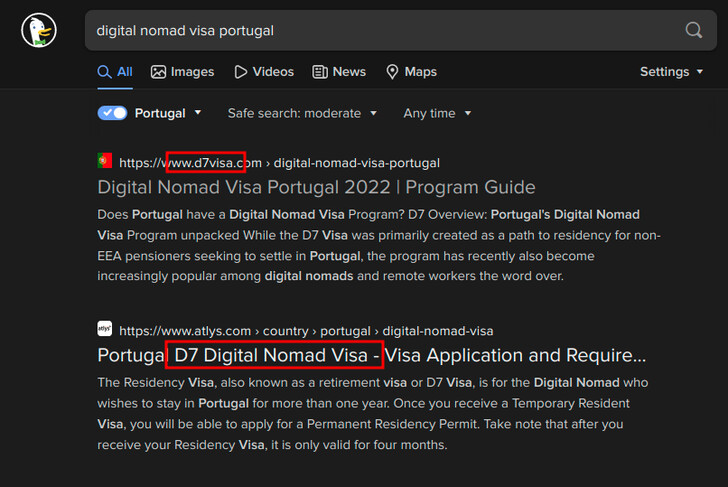Immigration sucks. In addition to the personal toll it takes on anyone, it is also mind-numbingly tedious and baroquely complex. Why aren’t things better by now?
This reminded me of the so-called “digital nomad visas”. Searching for that term will get you a thousand clickbaitey Wordpress sites with the “20 best countries with nomad visas” or whatever. But how real are they really?
I’ll admit the term sounds pretty cool. It sounds like something you’ll be doing on your phone, as opposed to over the hundreds of PDF files and scanned documents a normal application will demand.
In fact, the name is so enticing I’m pretty sure that’s the whole point. It is so radically opposite to idea of traditional visas that people can’t help but think that they are opposites.
The “digital nomad” part leads one to believe that the stamp is somehow catered towards tech workers with remote jobs; thus, being directed at that demographic, it makes sense to assume that the visa has the characteristics that make it more desireable to them than traditional visas – otherwise, what is the point of these visas? In short, I think this is what most people tend to think when meeting with the term for the first time:
| traditional visa | digital nomad visa | |
|---|---|---|
| Requirements | Many | Few |
| Application process | Hard, time-consuming, complex, lots of paper documents and legalese | Easy, fast, simple, lots of e-documents |
| Time | Measured in aeons | Measured in days |
| Path to full residency | Tortuous | Streamlined |
| Uniqueness | Specific to each country | Same/similar between countries |
| Time limits | Constrained | Unconstrained |
| Coolness | Minivan heading to football practice | Convertible doing doughnuts |
What people think is going on ☝️
What really goes on is that these digital thingies are almost always just a rebranding of old the same old temporary visitor visas. Now this is where things get interesting: who is advertising these visas as “digital nomad visas”? At first I assumed governments were doing the rebranding, but that is not always the case. There are some countries that do use the specific wording “digital nomad” when describing these visas, like Greece’s Law 4825/2021 and more famously Estonia; however, in most cases most of the publicity seems to come from elsewhere.
For instance, take the Portuguese D7 visa, which is very specifically meant for members of religious orders, retirees and people with significant passive income, but is touted as a “digital nomad visa”:
Now if you search for “portugal digital nomad visa”, guess which visa you are lead to believe is tailored for, well… digital nomads?
I’m not saying that the people above that are connecting “digital nomad” to the D7 visa are wrong in any way – they might be totally correct. In fact, among the search results there are so many law firms, consultancies, blogs and vlogs selling the D7 as exactly that that they are probably right. Have they found a loophole? Am I missing something – perhaps all remote workers are really nuns and priests in disguise? Do I just suck at googling and missed something obvious?
Be that as it may, one thing I would love to see is how many people successfully live as digital nomads with that visa.
Anyway, my point is that the publicity linking that visa to digital nomadism is coming from those very interested parties, and not the government of Portugal. In short, they have skin in the game, and you can bet they are making money off of that connection.
I bet if someone investigated other countries touted as having “digital nomad visas” they would find similar results.
Back to the original question, when are these visas going to be a thing?
In a sense they already are, because these are old visas under new guises – be it the government or third parties doing the rebranding. Now the idea we have of how they ought to be – the happy second column in the table above – that’s something else, and I can’t see it becoming a thing, ever.
No matter what shiny wrapping you put around immigration, it is still immigration. Countries that have painful processes have them for a reason – put simply there are more people willing to go through the process than they need, so they can be picky. That fundamental reality isn’t going to change just because we have this new expectation due to this shiny new term.
All countries have the same basic incentive for getting more of these “digital nomads”: high salaries, which means more taxes and consumption. How important that might be varies between countries, which explains the list of countries that have some kind of “digital nomad” visa – the larger world economies are usually not on those lists, and when some of them eventually are, the requirements are so stringent that they’re not really any different from normal temporary work or rich-person visa.
The closest thing I’ve seen to a “true” digital nomad visa is Estonia’s. They seem truly committed to the same ideals we described, and the process seems fairly straightforward. Its the exception that confirms the rule, sadly.


